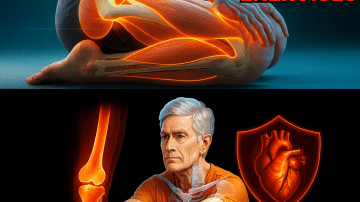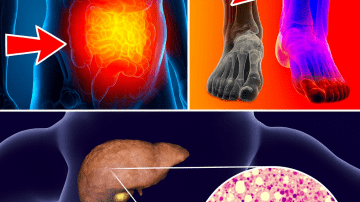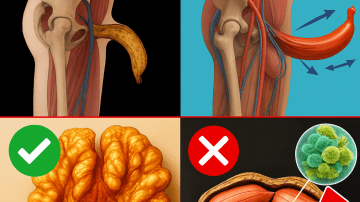Have you ever noticed your strength slipping away with age, making simple tasks like carrying groceries or climbing stairs feel harder than they used to? This silent loss of muscle, known as sarcopenia, creeps in after 50, threatening your independence and vitality. But what if the secret to rebuilding muscle and staying strong lies not in expensive supplements or gym memberships, but in the vibrant vegetables on your plate? Imagine savoring a colorful salad or a hearty veggie stew, knowing each bite is fueling your muscles and fighting the effects of aging. These 11 powerhouse vegetables, packed with protein, antioxidants, and vital nutrients, can help seniors over 60 reclaim their strength and live with energy. Ready to discover how to eat your way to stronger muscles and a more active life? Let’s dive into this life-changing guide that could redefine aging for you.
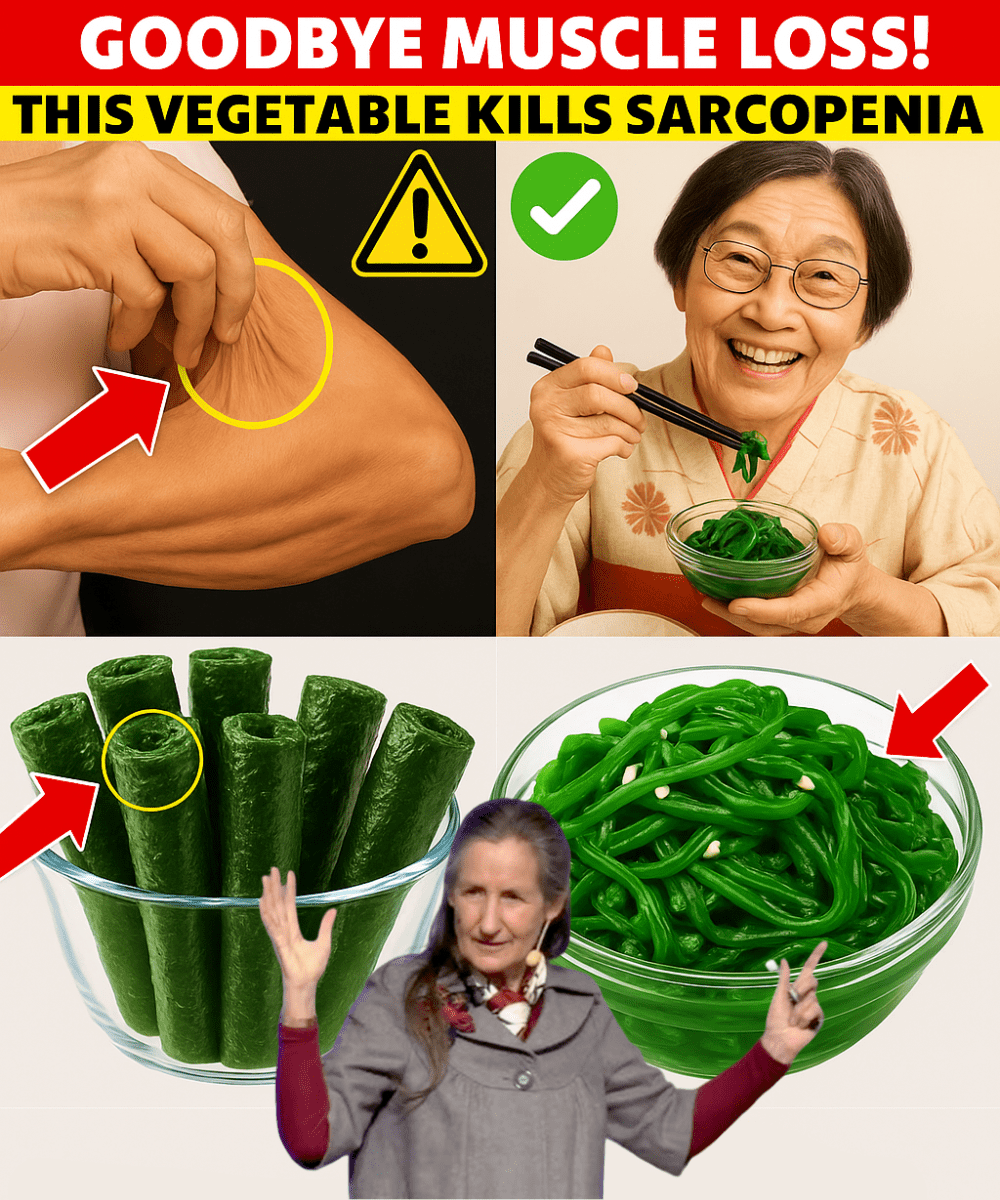
😔 The Hidden Battle Against Sarcopenia
As we age, our muscles naturally weaken, with sarcopenia affecting nearly 30% of adults over 60. This loss of muscle mass and strength can make everyday activities—like gardening, walking, or even getting up from a chair—feel exhausting. The emotional toll is just as heavy: losing strength can dim your confidence, limit your independence, and make you feel less like yourself. While exercise is crucial, diet is the foundation of fighting sarcopenia. Expensive protein powders and supplements, costing $30–$100 a month, promise results but often fall short or come with unwanted additives. Meanwhile, nature offers a simpler, more affordable solution: vegetables packed with nutrients that rebuild muscle and boost vitality. Meet Linda, a 65-year-old retiree, and Tom, a 70-year-old avid walker, who transformed their strength by adding these vegetables to their meals. Curious how your plate can power your muscles? Let’s explore the 11 vegetables that can help you defy sarcopenia and thrive.
✨ 11 Vegetables to Rebuild Muscle and Fight Aging
These aren’t just any vegetables—they’re nutritional powerhouses designed to combat muscle loss, enhance strength, and keep you moving with ease. Each one brings unique benefits to support your muscles and overall health.
🥬 Spinach: The Muscle-Fueling Superstar
Spinach is a green giant, loaded with magnesium, iron, and plant-based nitrates that boost blood flow to your muscles. Linda added spinach to her smoothies and noticed less fatigue during her daily walks within weeks. These nutrients support muscle function and recovery, helping you stay active longer. Ready to power up your muscles? The next veggie is a nutrient dynamo.
🌿 Kale: Your Anti-Aging Ally
Kale’s vibrant leaves are packed with vitamin K, calcium, and antioxidants that shield muscle tissues from age-related damage. Tom tossed kale into his salads, finding his joints felt less stiff after a month. Its anti-inflammatory properties protect muscles and support bone health, keeping you strong. Want to fight aging from within? The next vegetable reduces inflammation.
🥦 Broccoli: The Inflammation Fighter
Broccoli delivers vitamin C, folate, and sulforaphane, a compound that reduces inflammation and aids muscle recovery after activity. Linda steamed broccoli as a side dish, noticing faster recovery from her gardening sessions. This cruciferous veggie supports muscle repair, making it a must for seniors. Curious about stronger bones? The next one’s got you covered.
🌱 Brussels Sprouts: Tiny but Mighty
These mini cabbages are loaded with vitamin K and plant-based omega-3s, which strengthen both muscles and bones. Tom roasted Brussels sprouts for dinner, feeling his stamina improve over weeks. Their nutrients combat muscle breakdown and support joint health. Ready for sustained energy? The next veggie fuels your muscles.
🍠 Sweet Potatoes: Your Energy Booster
Sweet potatoes, rich in complex carbs, potassium, and vitamin A, provide long-lasting energy to fuel your muscles and prevent cramping. Linda swapped white potatoes for sweet ones, noticing fewer muscle aches during her yoga classes. Their steady energy release keeps you active. Want to boost endurance? The next vegetable delivers.
🍎 Beets: The Endurance Enhancer
Beets are packed with nitrates that improve oxygen delivery to muscles, making physical tasks easier. Tom juiced beets for a pre-walk boost, finding he could go farther without fatigue. Their vibrant color hides a powerful ability to enhance stamina. Curious about protecting muscle cells? The next veggie is key.
🥕 Carrots: The Muscle Protector
Carrots, brimming with beta-carotene and antioxidants, shield muscle cells from oxidative stress and age-related decline. Linda snacked on carrot sticks, noticing her skin and energy levels glowed after a few weeks. Their crunch delivers long-term muscle health. Want stronger joints? The next vegetable supports both.
🫛 Green Beans: The Joint and Muscle Supporter
Green beans offer fiber, plant-based protein, and minerals that maintain muscle strength and joint health. Tom added them to stir-fries, feeling his legs stronger during hikes. Their nutrients support mobility and resilience. Ready to boost nerve function? The next veggie is a game-changer.
🥬 Cauliflower: The Nerve-Muscle Connector
Cauliflower, rich in vitamin C and choline, reduces inflammation and improves nerve-muscle communication, essential for coordination. Linda riced cauliflower as a base for meals, noticing better balance during her daily chores. This versatile veggie is a senior’s secret weapon. Curious about vitamin D? The next one’s unique.
🍄 Mushrooms: The Strength Booster
Technically fungi, mushrooms are often counted as vegetables and deliver vitamin D and B-vitamins, crucial for muscle strength and energy. Tom sautéed mushrooms with his meals, feeling more energized for his morning walks. Their nutrients combat fatigue and support muscle repair. Want less muscle tiredness? The final veggie seals the deal.
🌱 Asparagus: The Fatigue Fighter
Asparagus combines vitamin E, folate, and antioxidants to reduce muscle fatigue and support growth. Linda grilled asparagus as a side, noticing her muscles felt less sore after activity. Its light, crisp flavor makes it a delicious way to stay strong. Ready to put these veggies to work? Let’s build your muscle-boosting plan.
🥄 Your Muscle-Building Meal Plan
Ready to harness these vegetables for stronger muscles? Here’s a simple guide to incorporate them into your diet:
- Start Your Day Strong: Blend spinach and kale into a morning smoothie with berries for an antioxidant-packed breakfast.
- Snack Smart: Munch on carrot sticks or green beans with hummus for a nutrient-rich, muscle-supporting snack.
- Lunch with Power: Toss broccoli and cauliflower into a salad with olive oil and lean protein like grilled chicken or tofu.
- Dinner That Fuels: Roast sweet potatoes, Brussels sprouts, and asparagus as sides for fish or eggs, boosting energy and recovery.
- Add Variety: Juice beets or sauté mushrooms to mix up your meals, keeping your plate vibrant and nutrient-dense.
- Frequency: Aim to include 2–3 of these vegetables daily, rotating for variety and maximum benefits.
Linda and Tom saw results in weeks—stronger muscles, better mobility, and renewed energy. These vegetables are affordable, available at any grocery store, and easy to prepare, making them perfect for seniors.
🛠️ Tips to Maximize Muscle Health After 60
To supercharge your muscle-building efforts, pair these vegetables with smart habits:
- Combine with Protein: Pair veggies with lean proteins like fish, eggs, or legumes to enhance muscle repair. Linda added eggs to her spinach salads for a protein boost.
- Stay Active: Engage in light strength training or walking 30 minutes daily. Tom’s weekly yoga strengthened his core, complementing his veggie-rich diet.
- Boost Vitamin D and Calcium: Sun exposure or fortified foods support bone health, crucial for muscle function. Linda took short morning walks for natural vitamin D.
- Hydrate Well: Drink 6–8 glasses of water daily to improve nutrient absorption and reduce muscle cramps. Tom carried a water bottle to stay consistent.
- Consult Your Doctor: If you have dietary restrictions or health conditions, check with a healthcare provider before making changes.
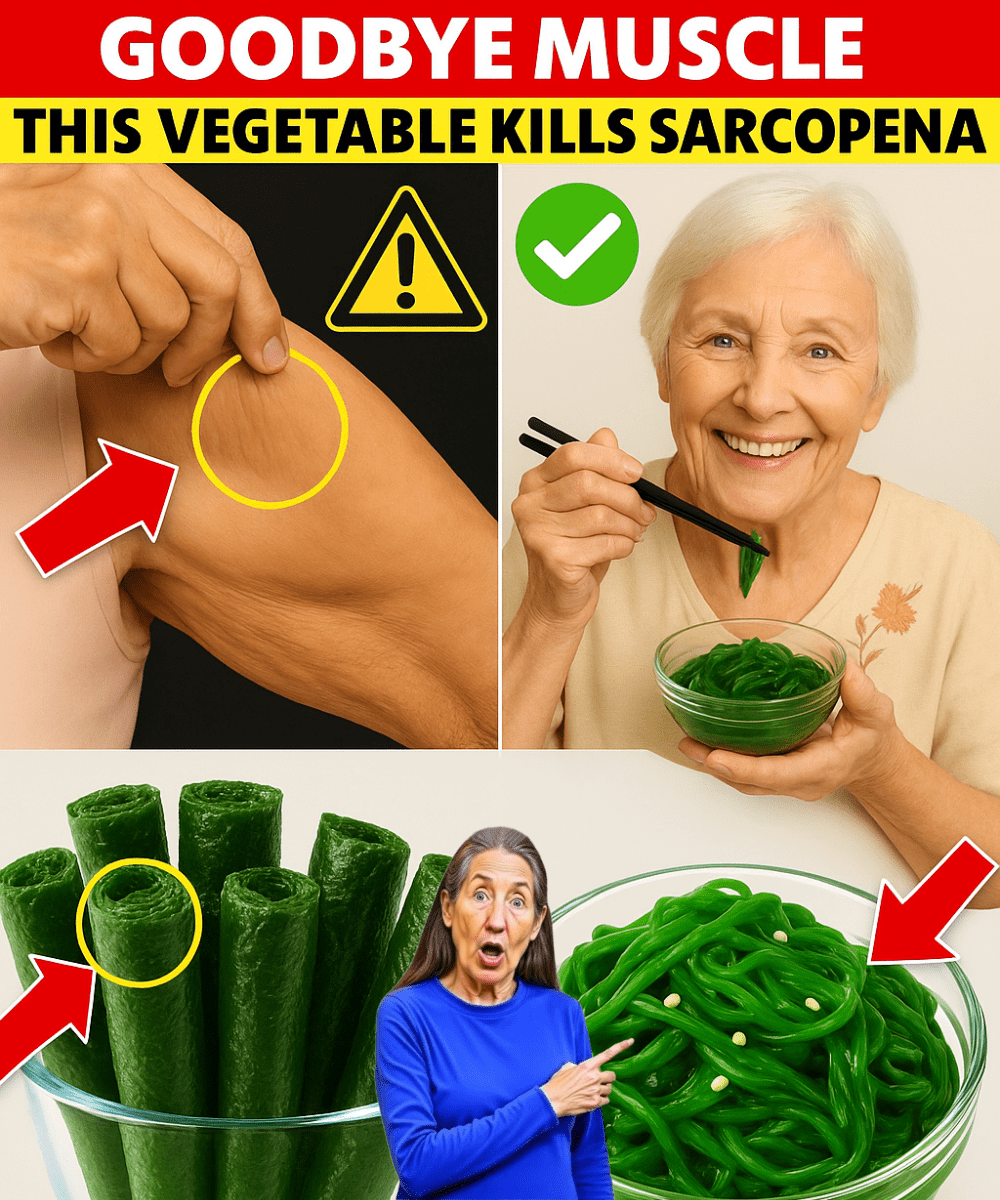
⚖️ Veggie-Powered Diet vs. Supplements
How do these vegetables compare to muscle-building supplements? Here’s the breakdown:
| Aspect | Vegetable-Rich Diet | Supplements |
|---|---|---|
| Natural | Yes, whole foods | Often synthetic |
| Cost | $10–$20/month | $30–$100/month |
| Benefits | Muscle, bone, whole-body health | Muscle support, limited scope |
| Side Effects | Minimal | Digestive issues, additives |
A veggie-focused diet offers broader health benefits at a fraction of the cost, with no artificial additives.
🛡️ Is This Approach Safe?
These habits are safe for most seniors, but a few precautions ensure success:
- Allergies: Check for sensitivities to vegetables like mushrooms or asparagus. Start with small portions.
- Dietary Restrictions: If you have kidney issues, consult a doctor about high-potassium foods like sweet potatoes.
- Balance Activity: Avoid overexertion; stick to gentle exercises if you’re new to fitness.
- Medical Guidance: Discuss dietary changes with a healthcare provider, especially if you’re on medications.
Linda tailored her veggie choices to her needs, while Tom checked with his doctor to ensure safety. Personalizing these habits maximizes their impact.
🌱 More Ways to Boost Muscle Health
Want to expand your muscle-building toolkit? Try these complementary strategies:
- Greek Yogurt: Packed with protein and probiotics, it supports muscle repair and gut health.
- Turmeric Smoothies: Reduce inflammation, aiding muscle recovery.
- Chia Seed Pudding: Omega-3s and fiber enhance muscle and joint health.
Linda loved chia pudding for breakfast, while Tom sipped turmeric smoothies post-walk. Experiment to find what fits your lifestyle.
🚀 Reclaim Your Strength Today
Sarcopenia doesn’t have to define your golden years. These 11 vegetables—spinach, kale, broccoli, and more—offer a natural, affordable way to rebuild muscle, boost energy, and stay independent. Linda and Tom transformed their strength and vitality with these simple additions, and you can too. Start with one veggie today, pair it with protein and movement, and consult your doctor to ensure it’s right for you. Share this guide with a friend—they’ll thank you for helping them stay strong. Bonus tip: Roast your veggies with a drizzle of olive oil for extra flavor and heart-healthy fats.
Why let muscle loss slow you down? Fill your plate with these powerhouses and embrace a stronger, more vibrant you.

